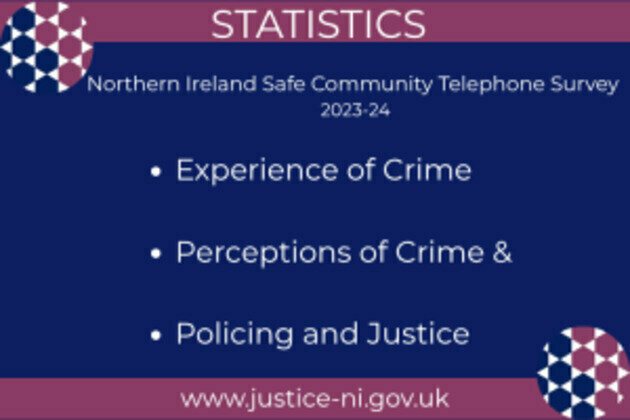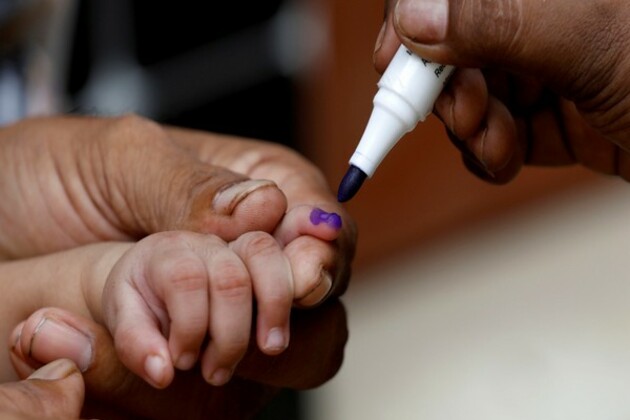Experience of Crime and Perceptions of Crime and Policing and Justice Statistics published today.
Date published:
The Department of Justice (DoJ) today published Research and Statistical Bulletin 'Experience of Crime and Perceptions of Crime and Policing and Justice: Findings from the 2023/24 Northern Ireland Safe Community Telephone Survey' (NISCTS).
An Official Statistics publication, the bulletin focuses on key modules contained within the NISCTS relating to:
- experience of crime.
- perceptions of crime.
- perceptions of policing and justice.
Key Findings
- Results from the 2023/24 NISCTS indicate that most adults/households did not experience a crime asked about in the survey. Latest findings estimate 4.5% were victims of at least one crime measured through the survey during the 12 months prior to interview; the proportion is down from 5.8% in 2022/23. An estimated 64,000 incidents of crime occurred during the 12-month recall periods for NISCTS 2023/24.
- NISCTS 2023/24 respondents were again more positive in their perception of crime trends in their local area than at the regional level. Just under a quarter, 24%, believed local crime levels had increased in the preceding two years. This compares with 68% considering crime in Northern Ireland as a whole to have risen, a proportion which is up from 60% in 2022/23.
- Findings indicate that 7% of participants perceived the level of anti-social behaviour (ASB) in their local area to be high, similar to the 2022/23 figure of 6%. None of the seven ASB strands considered showed a statistically significant change. 'People using or dealing drugs' (28%) and 'rubbish or litter lying around' (27%) were most likely to be viewed as problems.
- Around one-in-twelve (8%) respondents expressed a high level of worry about violent crime with the same proportion, 8%, very worried about becoming a victim of burglary. Of vehicle owners, 7% were very worried about becoming a victim of car crime. All three proportions were on a par with 2022/23.
- In terms of the effect of fear of crime on quality of life, there was no change in the breakdown from last year. At 76%, the majority of 2023/24 respondents felt fear of crime has a minimal effect on their quality of life, 21% a moderate impact with the remaining 3% reporting it has a great effect.
- Overall public confidence in the police and police accountability arrangements (based on a seven-strand composite measure) was 80% in 2023/24, similar to the 2022/23 figure of 81%. Two of the seven indicators that comprise the composite measure showed a statistically significant change. The proportions who felt that the Policing Board is independent of the police (70%) and helps the police do a good job (79%) both dropped from 73% and 84% respectively.
- In terms of the local police, 52% rated them as doing an excellent or good job, 36% considered them as doing a fair job, while 11% rated their performance as poor or very poor. While the excellent or good and fair ratings showed no statistically significant change from last year, there was a significant increase in the proportion who viewed their local police as doing a poor or very poor job, up from 10% in 2022/23. When asked about overall confidence in their local police, 68% felt that, when taking everything into account, they had confidence in the police in their area, similar to the figure of 70% the previous year.
- Confidence in community engagement dropped with decreases observed in the proportions agreeing that the police and other agencies seek people's views about the anti-social behaviour (ASB) and crime issues that matter and that these issues are being dealt with, both down from 33% to 29% and 41% to 37% respectively between 2022/23 and 2023/24.
- When asked about confidence in the criminal justice system (CJS), three-fifths (60%) were very or fairly confident that the CJS as a whole in Northern Ireland is effective, while 63% considered it to be fair. The latter saw a statistically significant decrease from 66% in 2022/23.


















